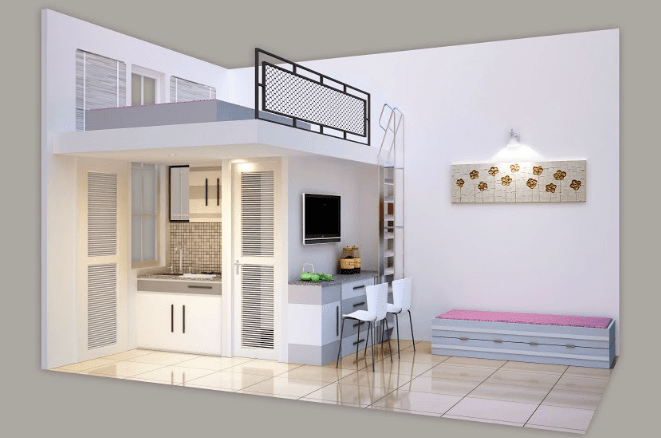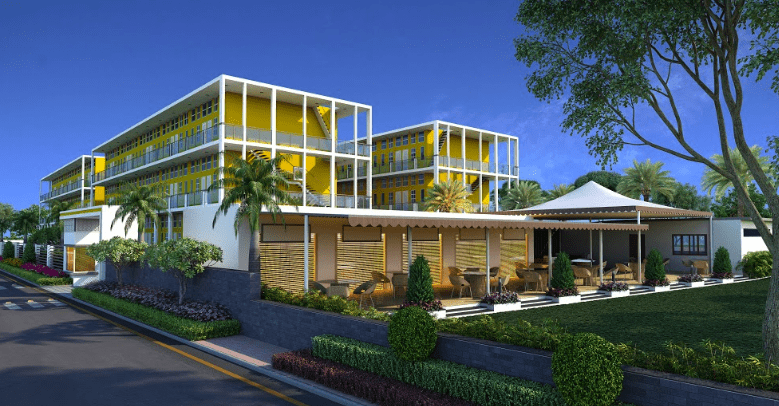Chototel provides ‘super-budget-hotels’, with uninterrupted utilities and social infrastructure such as crèches, community kitchens

Do you know that 200 million households in the developing world, including India, live in slums? Do you know that 60 million households today in the US, Europe, Japan and Australia are financially stretched by housing costs?
Estimates show that 330 million urban households today, around the world, live in substandard housing or are financially stretched by housing costs. If the current trends in urban migration and income growth are any indicator, then 1.6 billion people — that is 440 million families by 2025 — will occupy crowded, inadequate and unsafe housing, or will be financially stretched based on current trends in urban migration and income growth.
When feel envious about our neighbour’s palatial building, just look at the above stats and be grateful to God for the blessings we have.
Housing is a global problem. Forget villages, even in cities like Mumbai and Delhi, a huge chunk of people live in extremely deplorable conditions, with no access to even basic amenities like toilet. As the development takes place world over, more and more people are getting displaced and become homeless.
Perhaps, this startup founded by a Mumbai girl can be a game-changer. Rhea Silva, a 25-year-old, has built Chototel with an aim to provide a decent and clean room in metropolitan cities like Mumbai, Dubai, Bristol and London — just for $2 a night.

“Access to decent affordable shelter is so fundamental to the health and wellbeing of people and the smooth functioning of economies. Yet, in developing and advanced economies alike, cities struggle with the challenge of accommodating their poorest citizens,” says Silva.
“While working in the affordable housing industry after studies, I realised that there is a huge need for housing for people living in the BoP. We at Chototel aim to provide an alternative to housing needs of people without binding them to lease agreements etc.,” adds Silva, a graduate in Law and Management Studies.
Set up in 2015, Chototel provides ‘super-budget-hotels’, with uninterrupted utilities and social infrastructure such as crèches, community kitchens etc. — all for a $2 bill.
Chototel was started in Nagothane, a city on the Mumbai-Bangalore highway.
Currently, Chototel provides US$2-a-night room in Bristol (UK), Dubai, Lagos (Nigeria), Mumbai and Pune (India).
But how does Chototel manage to provide hotel stay for a song?
“Our business model works on the fact that we have income from daily rents. We also charge customers for utility consumption and consumption of other services such as creche for children and community kitchen, where the tenant can go and eat his/her meal. More importantly, all our utilities are off-grid, so we don’t have to depend on governments for electricity, water and gas connections. This way we have managed to reduce operating costs,” Silva says.
Chototel has also created a mechanism to monitor the utility consumption on a real-time basis. Chototel rooms are outfitted with microbots, which take in several data points to report back to the hotel and the tenant.
The user can also monitor the consumption using a mobile app.
The revenues from the utility services go into running of the hotel, while the money from rental goes back to repaying the capital expenditure. Rhea says that the entire hotel is built in a way that there is zero maintenance — the beds are rexine-made and not easily destroyable. And the furniture is made of steel and is durable.
Chototel is employing the benefits of light-gauge steel framing to build cheaper, quicker and greener buildings. Steel framing technology reduces materials wastage compared to conventional construction techniques, and eliminates the need for bricks and wood as raw materials.
The buildings are manufactured off-site and then assembled onsite. This ensures the quality of the construction and reduces construction time to a 180-day cycle. The construction methodology is highly automated, reducing the time and cost required to train local labour, while creating employment opportunities for vulnerable groups.
Each Chototel will have insulated walls, reducing the need for heating and cooling devices and consequently saving energy. At peak load, the houses are designed to consume less than 100 watts.
The rooms are managed by self-help groups or SHGs, a community of non-working spouses who maintain the rooms and operate the community kitchen and creche.
Chototel is planning to add Internet of Things (IoT) features, moving forward. “IoT will become part of every aspect of Chototel’s operations. Each Chototel hotel will be managed remotely, and many tasks that have traditionally relied upon manpower will be automated, minimising our operating costs. Guests can check-in and out of their rooms remotely using our mobile App, and pay for their rental with one click. Using this smart housing solution, guests benefit from real-time data of utility usage and can make payments on a consumption basis via their smartphones,” she explains.
Headquartered in London, the startup also runs an office in Mumbai.
What is your goal?
“In the next decade, we aim to build five million budget hotel rooms worldwide. This ambition responds to the global housing shortage that is predicted to affect 1.6 billion people or one-third of the global urban population, by 2025. Our strategy is to employ the power of technology to provide quality rental housing at an unprecedented nightly rate. We are targeting highly-urbanised areas in both developed and developing regions, where people are currently struggling to find affordable accommodation,” she concludes.
















































